The
Canon of the Dead
A couple of posts ago, I put out a call for a zombie canon - an attempt to separate the best and most relevant zombie texts from the rest of the hoard (Zombies vs. Strippers, for example... probably not gonna make the cut). This post, persistently updated, is where that list will reside. I've separated it by format for ease of reference, but that could change.
The Works of George A. Romero:
Yes, he get's his own category. If it wasn't for him, there wouldn't even be a damned list. At some point, I will get around to complete entries for each of his films. For now, Beth Kelly's article will do. "Legacy of the Dead: George A. Romero's Contribution to the Zombie Canon"
Night of the Living Dead
You know what, if you haven't seen it already, just watch it. Now.
Dawn of the Dead
Day of the Dead
Diary of the Dead
Survival of the Dead
Film:
Holy shit I love this movie. As important as the Resident Evil franchise was in re-introducing zombies to the popular consciousness, 28 Days Later stands alone as patient zero of the zombie renaissance. After a decade of Scream and I Know What You Did Last Summer movies, Boyle reminded us that horror could be smart. And following years of camp and exploitation - think Dead Alive and The Dead Next Door - he sure as shit showed us that zombies movies could still be scary.
Of course, Boyle certainly played with the form a bit to do so. For one thing, the film gives us our first look at fast zombies. I can almost hear the purists cringing, so let's get that out of the way. There is no shortage of people that don't consider 28 Days Later a zombie film - these "zombies" aren't dead or even undead (un-dead undead?), they don't seem to eat flesh, head-shots are not required to kill them, and they run for F's sake. All of that is perfectly true. And though I might find arguments against the zombie-ness of "the infected" compelling, this is without question a zombie movie. All of the hallmarks are there: contagion, ever increasing hordes of lethal beings, societal collapse, a band of survivors, even a weirdly well-lit shopping spree. Although the tweaks pull these creatures a little bit away from traditional zombie lore, these differences are instrumental in resituating the zombie as horrific to our current sensibilities. In the age of 24 hour news coverage and high-speed (hyper speed?) digital communication, slow, shambling zombies are a tougher sell as a terrifying force of (un)nature (one of the most impressive thing about The Walking Dead is that it manages to convincingly present the slow moving "walkers" as truly horrific). The now and right now generations need their zombies to move. Shifting the monster from risen dead to "the infected" reflects a growing skepticism of the supernatural. Following the real life horrors of 9-11, the world had less and less patience for ghouls and goblins. We wanted our monsters to be real. The Romero zombie scared us not by making us believe it, but by questioning if we could handle this type of calamity. The Boyle zombie takes it a step further: it horrifies us because it obeys the laws of the universe as we know them. This, or something like it, could actually happen. There is a horrible horrible plausibility here that allowed the zombie to re-take its place as our worst nightmare and preeminent monster.
Fido, written by Robert Chomiak, Dennis Heaton, and Andrew Currie, directed by Andrew Currie
Fido, written by Robert Chomiak, Dennis Heaton, and Andrew Currie, directed by Andrew Currie
Andrew Currie’s Fido presents a bit of a departure from the films that we have added to the Canon of the Dead so far (28 Days Later and the works of George A. Romero). Unlike the vast majority of zombie films (and zombie narratives, in general), Fido is not a horror film. However, what it lacks in scares and suspense, it more than makes up for with style and wit. This is a beautifully shot and extremely well-executed film, an almost point perfect parody of 195os TV series like Lassie, Leave It to Beaver, and Peyton Place. What makes Fido so interesting though, as a zombie text, is the way it manages to seamlessly integrate zombies into a pre-existing mode of filmic representation (I’m hesitant to refer to it as a genre; perhaps “era” is more appropriate).
Without ever specifying that the time the story takes place actually IS the 50s - I mean, technically, the film could take place in a future shaped by ZomCom to reflect 1950s sensibilities, right? – Fido nonetheless makes us feel like we’re watching the 50s. But it also makes us wonder what the 50s were really like. If we believe the evidence left to us from Lassie and the Beave, the 50 certainly seem like a time when there was a car in every garage and a roast on every table and Dad had all the answers and Mom knew her role. By toying with the idea of appearances and surface structures, though, Fido pushes us to question the idealized notions of our past that have become so comfortable to us. As much as it acts as a parody, however, it is also clearly allegorical in its approach. It’s talking about the 50s, clearly, but it’s not just talking the 50s. Hell, it’s probably not even talking mostly about the 50s.
Released in 2007, a time where the freedom vs. security debate surrounding the patriot act had not quite abated, and immigration was becoming more and more of a concern, Fido (a Canadian film) is a scathing critque of modern American life as well. Smart, hilarious, and more than a little twisted, Fido is everything you could ask for in a zombie film. If you haven’t seen it yet, you should.
TV:
The Walking Dead, developed by Frank Darabont, based on the work of Robert Kirkman
I really wish this wasn't so easily and obviously the only real entry under TV. Oh, I'm sure there are probably episodes from The Zone, Tales from the Dark Side, and Tales from the Crypt, there is clearly nothing even close to The Walking Dead when it comes to its contribution to the zombie zeitgeist. If only based on its staggering popularity alone, the AMC ratings monster would demand a spot on this list. But it's actually really, really good. And bright in a way that I'm not sure even most of its most ardent fans give it credit for. The questions it asks of our society as we know it, and the remnants of it that would carry on, are disturbing to say the least. Plus, [semi-spoiler alert] the twist when the barn is opened in season 2, is one of the single most affecting moments in the nearly 50 year history of flesh-eating-swarm zombie fiction. Typing about it gives me goosebumps.
Lit:
Novels-
Apocalypse Z (the trilogy), by Manel Loureiro
I
like the setting of Europe, rather than the US, but I also like that the
protagonist is a character much like I am. He is a professional guy, struggling
with private pains and disappointments. He holds on to symbolic things even at
great costs. He makes his way using wit and common sense and a lot of trial and
error. He is not a survivalist. He is not trained for this kind of thing (who
is?); he is just a guy caught unaware by the end of the world as he knows it. [Lorna 9/10/14]
In
the Parodic mode [it] highlight[s] the same kinds of social concerns that
Austen raises--rigid class systems, gender roles, a society of manners gone
awry--but add in zombie mayhem. While the result is an Elizabeth Bennet who can
not only match Darcy in wits, but also in ninja like skills, the points raised
by the Austen novel remain intact (and Seth Grahame Smith is genius at matching
tone). [Lorna 9/10/14]
I also think that Graham Smith deserves a great deal of credit for, to my knowledge, creating the first literary "remix." Certainly, a great many authors have spoofed, or re-told the stories of others, but I can't think of another example, before PP&Z, of a new story being fashioned around and between the words of extant piece of literature. Pride and Prejudice and Zombies not only raises interesting questions about intellectual property and art (how much do you have to change someone else's work to make it your own?), but also about the, let's say, cannibalistic nature of the zombie genre. If Pride and Prejudice can be infected with zombies, then nearly any text could be similarly afflicted. And indeed, a great many have. See: Alice in Zombieland, Robin Hood and Friar Tuck: Zombie Killers, The Adventures of Huckleberry Finn and Zombie Jim, The Undead World of Oz, and on, and on. [Manny 9/10/14]
Pride and Prejudice and Zombies: Dawn of the Dreadfuls, by Steve Hockensmith*
*This is a provisional listing. I don't want to reject entries like I have veto-power, not I'm not convinced that Hockensmith is as effective, or accomplishes as much, as Graham-Smith in this "prequel." I would welcome further input [Manny 9/10/14]
World War Z, by Max Brooks
Although there are several films featuring zombies
that I think have or will become considered part of the overall Western Canon –
Night of the Living Dead and Dawn of the Dead are already part of the
National Film Registry, while 28 Days
Later and probably even Shaun of the
Dead likely to end up on the list eventually (at some point I should
probably seriously consider the fact that the two most well-regarded films of
the Zombie Renaissance are both British films) – there are far fewer written
zombie texts whose places are so secure. If I could only pick one zombie book
or story to nominate for the Canon at large, it would be Max Brook’s World War Z. Though I’m hesitant to call
it a novel (which I admit is probably splitting hairs), Brook’s
mock-ethnography draws on the work of Studs Terkel to provide readers with a “look
back” at the origins of a zombie outbreak in a time and reality not too distant
from the ones they know. That’s actually selling Brooks short; his book reads
horribly horribly true. Which is a bit surprising given its highly satirical
approach (though it could be convincingly argued that the book is parody,
allegory, pastiche, or even all of the above, as well). However you choose to
categorize World War Z one thing is
clear: the book is Max Brooks’s scathing critique of the world as he knows it.
And it turns out, he knows it pretty well.
Traditionally, zombie narratives to be relatively
local affairs. What would a zombie outbreak look like here, where “here” indicates some specific place and time (a rural
farmhouse in the 1960s, millennial London, etc.)? While most of these texts at
least imply that their particular iteration of the outbreak spans the globe (or
will soon if it doesn’t already), World
War Z is the first text that explicitly engages with the global nature of
the pandemic. This serves two purposes. First, it allows Brooks to criticize everybody. Brooks is certainly extremely
critical of late capitalism and the Western military-industrial complex, but
these are hardly the only institutions to draw his withering gaze. Using a
surprising breadth of knowledge regarding geo-politics and world culture,
Brooks takes shots at, well, the whole world for what he regards as a universal
inability to prevent or manage a cataclysm on this scale. Second, but along the
same vein, situating his particular version of the zombie apocalypse as a
global event allows Brooks to destabilize all of the imagined communities to
which we so fervently cling. Zombies don’t respect borders, or faith, or class,
or race, or politics, or gender, or sexual orientation, or any of the other
ways we choose to group ourselves off from one another. By positing zombies as
an Other for all of humanity, Brooks
erases some of the lines between us, leaving a single, human Self. Of course,
whether what’s left is worth saving is another question entirely.
Also, someone please make this into a series. Without
meaning in any way to disparage or denigrate the wildly uninteresting,
dumbed-down, and sterilized action blockbuster that shares its name, World War Z is simply not a story that
is very well suited for film (even if the studio heads hadn’t decided to dip a
good idea in glitter and deep fry it). However, a World War Z TV series, or even mini-series, told in flashbacks by
an enthnographer and his or her interviewees (a similar structure has worked
well in The Wonder Years and, more
recently, How I Met Your Mother),
would be pretty effing amazing. And I’m going to keep harping on it every
chance I get until someone does the right thing and makes it happen.
Zombie, Ohio: A Tale of the Undead, by Scott Kenemore
Zombie, Ohio is different. I’d even go so far as to say unique. Not in that the narrator of the story is a zombie – it’s rare, but it’s been done – and not in that it presents a zombie that can think and talk, because that has been done before too, but in the fact that its thinking, talking zombie narrator does so in violation of the rules of his own zombie apocalypse. Pete Mellor, or rather Pete Mellor’s zombie, is an apparent singularity within the fictional universe he inhabits. Unlike, say, Return of the Living Dead or the short story “A Zombie’s Lament,” where all zombies seem rather sentient and chatty, Zombie, Ohio presents Mellor, aka the Kernel, as an exception among the zombie horde, the rest of which are all of the mindless, moan and groan variety. Situated dead in its center, Mellor undermines the ostensible binary relationship between human and zombie in some very interesting ways. For the first time ever (I think), a zombie uses what humans think they know about zombies, the definitions and categorization that the humans have imposed, against them in his effort to eat their brains.
The novel also raises some surprisingly profound questions, however, about the notion of self. By creating a zombie who is mostly, though not entirely, amnesiac with regards to his former self, but who is also keenly aware of his current condition, Kenemore pushes his readers to interrogate what it means to be “me” (not me, me, but them, me; got it?). Is our sense of self determined solely by a collection of memories, or a continuity of consciousness, or is there something more to it than that? Am I still me if I don’t remember who I was? What if I profoundly change? Is me now the same me as me then? For as fun and gross and sometimes goofy as this book is, there is also a certain philosophical and psychological weight to it, if you are paying attention. This is high level zombie lit, from one of the growing stars of the field.
Graphic Novels-
Short Fiction-
Dead Inside Do Not Enter: Notes From the Zombie Apocalypse, by Lost Zombies
Realistically, this could have just as easily gone under an “Other” heading as “Short Fiction.” It certainly isn’t a short story in the way we typically think of them. In fact, it’s barely a story at all. Unless you count all of the blanks that you are asked to fill in on your own. What it is, however, is amazing. And unsettling. And heart-breaking. And terrifying.
I was tempted to label this book an epistolary novella, but I felt like that would really have been stretching each term towards its breaking point. It’s probably more like a scrapbook than anything. When the world is ending, what type of messages would we send? What would our last words look like as our culture failed? Instead of letters, the book is made up of a series of notes, written on all manner of scraps and fragments – notebook paper, birthday cards, lotto tickets, matchbooks, torn cardboard, whatever – that were ostensibly “discovered in a backpack […] in Northern California” following a zombie outbreak (Editor’s Notes). This collection of found correspondence is so pitch-perfect authentic in its depiction of the pettiness, humor, ignorance, and panic that would define our final moments that it hurts. The notes don't seem to be linked or arranged in any discernible way, and there is no real indication that the writers of any of them ever knew or met one another. However, what it lacks in narrative structure, Dead Inside more than makes up for in gut-punch effectiveness. Some of the letters are just close-the-book-and-sit-there-until-you-get-over-it awful. And almost never in a gruesome or gory way. This is horror at its most cerebral, because it makes you do most of the work. You have to buy this book (paperback, there are apparently formatting issues with the Kindle version).
Anthologies-
Zombies: Encounters with the Hungry Dead, edited and with commentary by John Skipp
While there is no shortage of zombie anthologies on the market, the latest from Skipp (following Book of the Dead, Still Dead: Book of the Dead 2, and Mondo Zombie) stands apart for a few reasons. First, it picks better stories. This is obviously a wildly subjective claim and I am completely okay with that. Other anthology compilers often seem more intent on cashing in on a hot trend than providing a coherent and relevant group of zombie and zombie-related stories. Skipp's real affinity for zombie fiction is palpable and it makes all the difference. Beyond that, the relative newness of Zombies means that it includes several stories that were written post-2002 (which, I would argue marks the advent of the Zombie Renaissance). Moreover, as Skipp's most recent effort, Zombies: Encounters with the Hungry Dead, is able to act as a best-of anthology, of sorts, containing multiple entries from Skipp's previous compilations. As such, its "hit" percentage is markedly higher [Manny 9/11/14]
Other-
The Zombie Survival Guide: Complete Protection from the Living Dead, by Max Brooks
I really don’t know what the hell to call The Zombie Survival Guide, as far as literature goes. I mean, it’s very clearly a parody, and a high level one at that, but how do you categorize a fictional field manual? Well, whatever you call it, it’s great, and its impact on 21st century zombie lit. is undeniable. Continuing the trend that began with the Resident Evil series, and spread to film with Resident Evil and 28 Days Later, The Zombie Survival Guide showed that zombie books could be both interesting and financially successful (working its way onto The New York Times Best Seller’s list). It also helped pull zombies out of what had become a fairly goofy horror/gore niche. Although it deals, often quite explicitly, with horrific material and even some gore, The Zombie Survival Guide is not a horror book. Rather, it uses horror as a tool (along with parody) to poke fun at how wildly unprepared our pampered society is for any high level disaster. We don’t even have basic preparedness, let alone “protection from the living dead.” But Max Brooks is really bright and rarely operates on only one register. So, while he is clearly parodying survival manual with pitch-perfect tone and satirizing Western privilege, he also uses his “Recorded Attacks” vignettes (gestured to throughout the book, and then expanded upon in an appendix at the end) to raise some really clever epistemological concerns over the certainty we tend to ascribe to history and how readily we believe the things we are told by the people we hold as experts. By mixing completely fictionalized accounts of history with other legitimate but inexplicable historical events (the chronicles of Hanno the Navigator or the disappearance of Roanoke Colony, for example), Brooks forces his readers – well, the ones who are paying attention – to question not only what they “know” but how they know it.
Video Games:
Resident Evil (the series), created by Shinjin Makami
Resident Evil doesn’t get
the credit it deserves. That’s unfortunate. Although the video games from the
series, as well as the films, have all been commercially successful, they aren’t
typically regarded with the same type of critical affection as their more
literate zombie kin, 28 Days Later, Shaun of the Dead, or even Fido. However, there is almost no chance
that the zombie renaissance as we know it (there’s nothing else to call it), to
say nothing of the survival horror video game genre, would have occurred if
millions of us hadn’t taken that first unpleasant trip to Raccoon City. Resident Evil did a lot more than prove
that video games could be scary, though; it also helped reshape the way that we
conceive of narrative. By offering players multiple endings based on choices
they made while playing, Resident Evil
helped usher in the age of video games that operated more as non-linear,
interactive fictions than simple stories that players followed from start to
finish. And they did it while making zombies scary (and cool) again.
My memories of playing Resident Evil in 1996 aren’t as clear as
I’d like them to be, but I distinctly recall Resident Evil 2 scaring the shit out of me, even as a “macho” high
school football player. These games, with their dicey controls and sometimes
hilariously cheesy dialogue, were frightening in a way that zombie narratives
hadn’t been in a very long time. Zombies had been fun in the 80s, and kitschy
cult cool, but they probably hadn’t been really
terrifying since Dawn of the Dead. As
part of this project, I’m going to revisit these games, to try to pinpoint what
made them such the perfect vehicle to remind us how awful the walking dead can
truly be.
Digital Media:
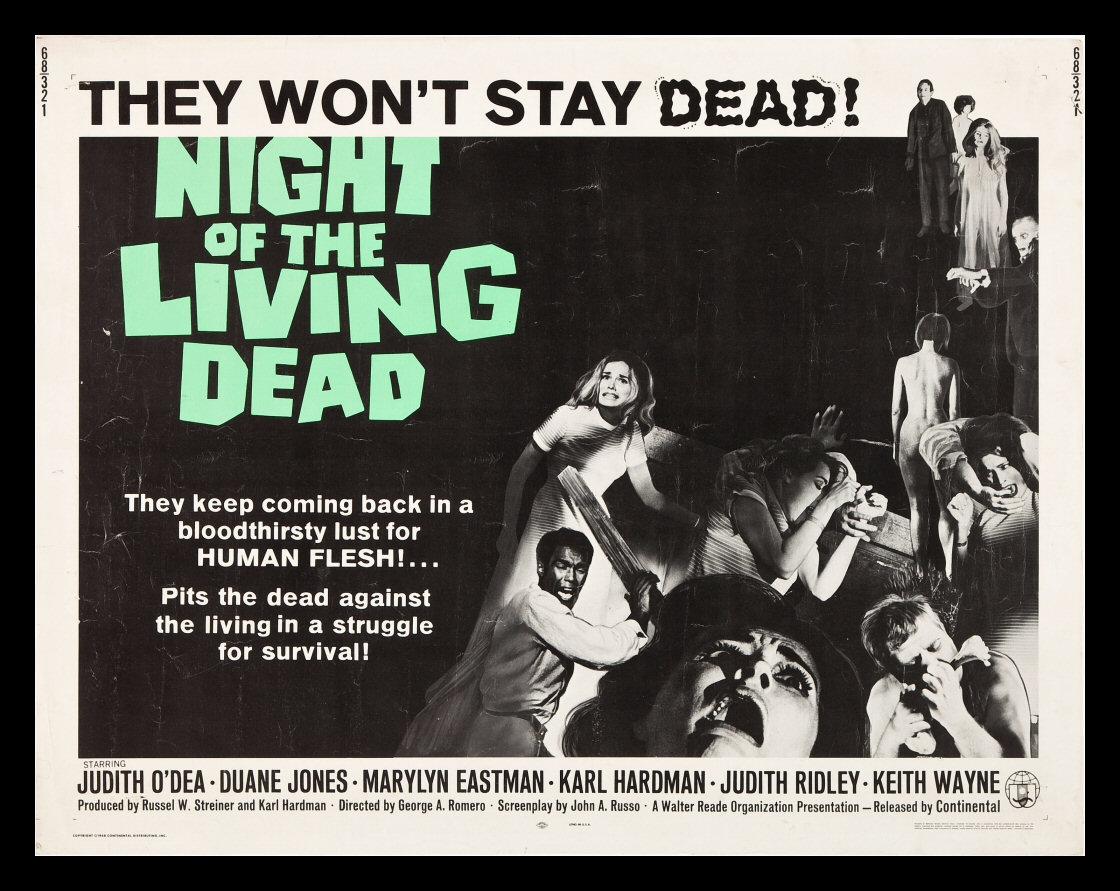




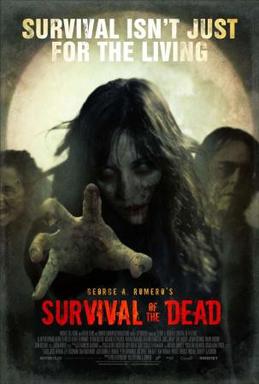
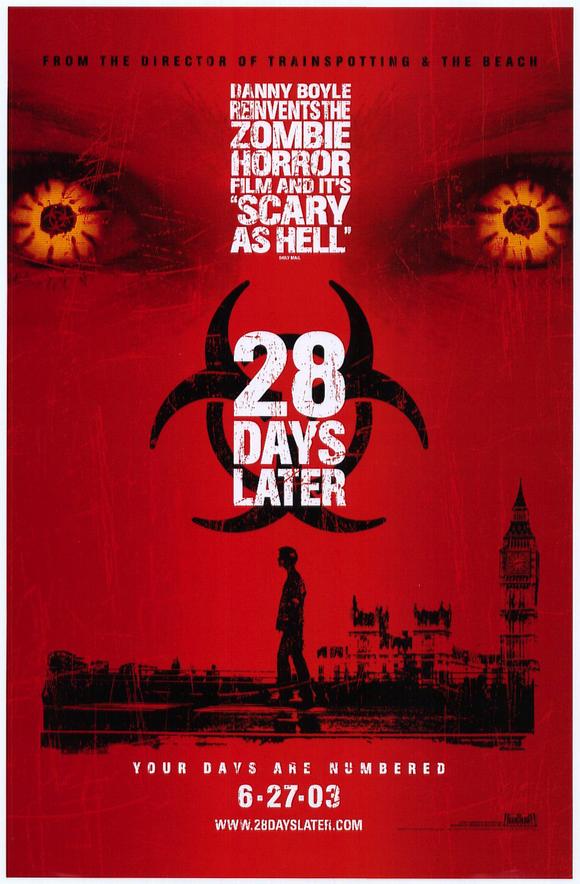



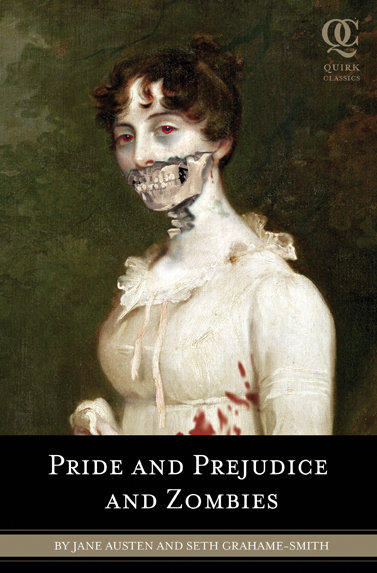

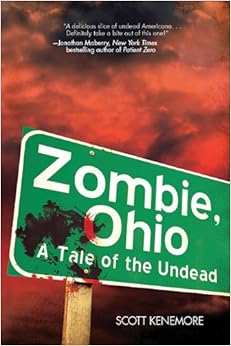
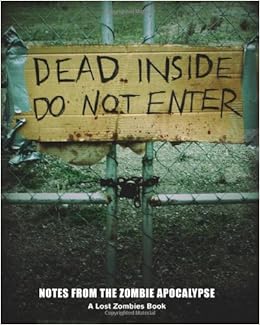

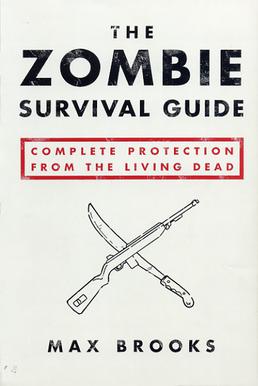
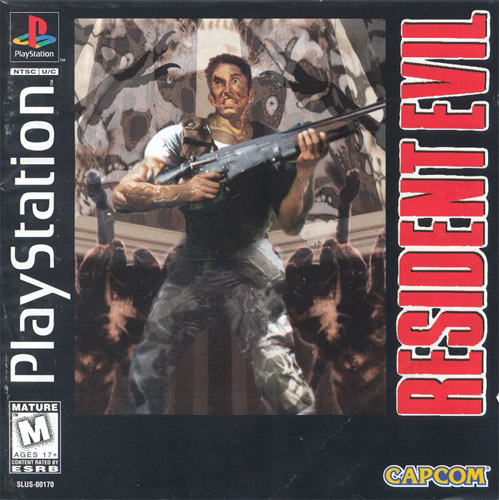
No comments:
Post a Comment